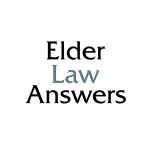Oops! We could not locate your form.
What Our Clients Say About Us
Bernie Krooks is among the leading Elder Law Attorneys in the country and I have seen how he serves his clients with professionalism, unsurpassed knowledge and true empathy. As an attorney, I have worked with Bernie on a number of cases. I have seen first hand how he exceeds client expectations. Very impressive.
- S.M. March 4, 2017
I highly recommend Litman Krooks for special education needs and advocacy. Marion Walsh and Sandi Rosenbaum were able to help us secure the educational services that our child needed, and they did it with extremely little time to prepare. We were very impressed with their responsiveness and willingness to take our case with just a few days notice.
- S.M-C. February 21, 2018
Amy O'Hara, Esq, and her support team were first rate in addressing our estate planning needs. They are experts in the field, skilled and quite professional. They were very helpful to us.
- T.B. January 8, 2018
The professionals at Littman Krooks are top notch, smart, attentive, and effective. Our case against the school district for our daughter was resolved in a positive outcome within weeks. I would highly recommend Marion Walsh for all of your most complicated situations. She has great experience and knows the law!!!!
- T.N. March 2, 2018
Our family relied on the calm caring expertise of the Littman Krooks staff and attorneys to guide us through a difficult time. I have recommend the firm wholeheartedly to other families and will definitely use them again should the need arise.
- P.F. February 4, 2019
Creating a Will
You need a will to direct the distribution of your assets. When you create a will, you decide who receives what, and you also control factors such as who the executor of your estate will be.
If you die without a will, state law determines how your estate will be divided, and it may not be what you would have chosen. New York State's law of intestate succession provides a single set of rules that are followed in every case of a person who dies "intestate," or without a will. These rules are the government's attempt to distribute a deceased person's assets in a sensible way, to their close family members. However, this "one size fits all" method does not allow you to choose what will work best for your family's unique needs.
Your estate plan should be coordinated with your retirement plan. It is crucial to have not only an inventory of your current assets, but also a projection of how your investments and your spending during retirement will affect your estate. Your own potential long-term care needs should also be considered. When you have an estimate of what you will need during your lifetime, you can create a will that directs the distribution of your remaining assets to your heirs and beneficiaries.
Planning Considerations
The first step in the process of creating a will is to take a thorough inventory of your assets. You will need to know the fair market value of any real estate you own, and you should also consider how certain resources are titled.
- Take a thorough inventory of all your assets.
- Make a a projection of how your investments and your spending during retirement will affect your estate.
- Think about your our own potential long-term care needs.
- Consult with an estate planning attorney to develop a plan that can distribute the assets you will not need during your lifetime.
- Take a thorough inventory of all your assets. You will need to establish fair market value and consider how resources are titled.
- Make a a projection of how your investments and your spending during retirement will affect your estate.
- Think about your our own potential long-term care needs and what methods will be used to finance them.
- Consult with an estate planning attorney to develop a plan that can distribute the assets you will not need during your lifetime.
There are many reasons why you may wish to include one or more trusts in your estate plan. While a will provides for direct distribution of your assets, a trust is a way to hold property for the benefit of another person.
The creator of the trust designates a person known as the trustee to manage and distribute the assets for a beneficiary.
When a trust is created by a will, it is known as a testamentary trust. Your will can direct that some assets be distributed directly, and others be put into trust. This may be useful when you have heirs who cannot manage the money on their own, for instance because they are too young or because of a disability. In your will, you can instruct a trustee to manage funds responsibly and make appropriate distributions to the beneficiary.
Trusts can also be created during your lifetime. A revocable living trust can be formed while you are alive to allow a trusted person to manage your affairs, even if you become incapacitated. You can also place your major assets in such a trust, so that your trustee can distribute them according to your instructions directly from the trust after your death, without the need to wait for the process of probating your will.
Trusts can take different forms and can be used for several purposes.
Special needs trusts can provide for a family member with a disability while protecting their eligibility for public benefits. Asset protection trusts can keep resources safe from future creditors. Spendthrift trusts safeguard assets from young adults who have not yet developed good money management skills. Bypass trusts can help wealthy New York families keep the state estate tax exemption of the deceased spouse for the surviving spouse. Charitable remainder trusts take advantage of tax deductions to make an irrevocable charitable gift, while also benefiting a non-charitable beneficiary.

There are several strategies that can be employed to reduce your family's estate tax burden. Bypass trusts can address the portability issue with New York's estate tax. Gifts made during your lifetime are a good way to provide for your loved ones while avoiding taxes.
You may make annual gifts of $15,000, per individual recipient, to as many individuals as you like, without them counting toward your lifetime gift and estate tax exemption amount.
New York Estate Tax Considerations
- New York State has no spousal portability. Unused unified credit cannot be given to a surviving spouse for state tax purposes.
- If a New York resident has a taxable estate exceeding the New York State exclusion amount by 5%, then an estate tax is imposed on the entire value of the estate.
- New York State has no spousal portability. Unused unified credit cannot be given to a surviving spouse for state tax purposes.
- If a New York resident has a taxable estate exceeding the New York State exclusion amount by 5%, then an estate tax is imposed on the entire value of the estate.
Knowledge and Experience
Littman Krooks LLP combines extensive legal knowledge and expertise with individual attention to your needs. Over 25 years, we have brought astute, honest counsel and strong, thorough representation to every one of our clients.


Award-Winning Legal Service





Littman Krooks Has Been Featured In:





Schedule An Appointment Today
(914) 684-2100
Littman Krooks LLP
New York City Office
655 Third Avenue,
20th Floor
New York, NY 10017
(212) 490-2020 Phone
(212) 490-2990 Fax
Westchester County
800 Westchester Ave
Suite S-436
Rye Brook, NY 10573
(914) 684-2100 Phone
(914) 684-9865 Fax
© 2019 LITTMAN KROOKS LLP. ALL RIGHTS RESERVED.
This article does not constitute legal advice and should not be relied upon. If you need legal advice concerning this or any other topic please contact our offices to schedule a consultation with one of our attorneys at 914-684-2100 or 212-490-2020.

